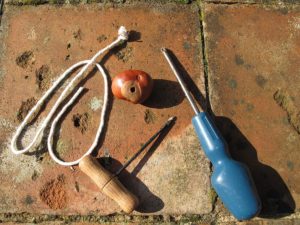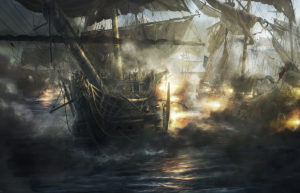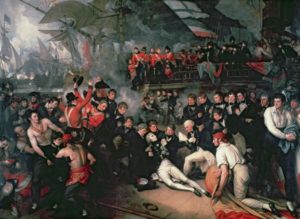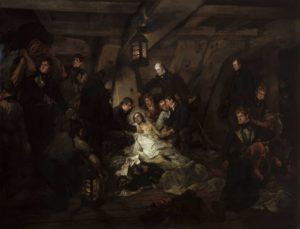 Did you know that in Britain, the second Sunday in October is “National Conkers Day”?? Yes, yesterday you should have pulled out your best hardened-up horse chestnut on a string and challenged some other conker player to a match. What, you didn’t know? Well, I confess I didn’t either until I ran across this factoid while doing research for my current revisions.
Did you know that in Britain, the second Sunday in October is “National Conkers Day”?? Yes, yesterday you should have pulled out your best hardened-up horse chestnut on a string and challenged some other conker player to a match. What, you didn’t know? Well, I confess I didn’t either until I ran across this factoid while doing research for my current revisions.
So, this time it started because my heroine needed to climb a tree. Not just any tree, but a big old one, tall with spreading branches that would be stout enough for the job –not to mention that earlier in the story a cheetah needed to perch on one of said stout branches of the same tree.  (I do know that cheetahs don’t climb trees. You’ll need to read the story –The Magnificent Marquess wasn’t originally and in the new version still won’t be your standard Regency romance.)
(I do know that cheetahs don’t climb trees. You’ll need to read the story –The Magnificent Marquess wasn’t originally and in the new version still won’t be your standard Regency romance.)
I thought a horse chestnut ought to do the trick, and they are common in Great Britain in modern times, but –I was pretty sure they aren’t native to Britain. So first thing to check: when were they introduced? Second thing to check: how big can they grow?
I’ve learned that in doing research, assumptions are the biggest stumbling-block (and often the hardest thing to recognize!). That’s where the conkers come back in. I found the info I needed (trees introduced from Persia/Turkey/the Balkans in the 16th century, can grow to 100 feet high). I thought about having children in the story engage in playing conkers since the tree was there.

Have you ever played conkers? I haven’t –but my husband says he did in his youth. I was aware of it as a thing people (mostly boys) used to do, and I assumed that conkers was a game well-venerated through the ages, human nature being what it is. And actually, it is. Just not with horse chestnuts.

2014 World Conkers, photo courtesy Jez Shimell
It seems, at least according to the sources I saw, that in earlier times conkers was played with snail shells, cobnuts, even stones, but conkers with horse chestnuts (they claim) is 20th century. I also saw the date 1848 given in several sources as the year of the first recorded conkers game, on the Isle of Wight. Victorian, and not with horse chestnuts, apparently. Now the World Conker Championships are held in Northamptonshire on the second Sunday in October every year.
 It would take some more digging to verify if the sources I saw were actually correct. I did not take the time to look further. Too many rabbit holes out there, and time is always short. Who could prove they were the first person ever to put a horse chestnut on a string? I am not convinced that it was not being done during the Regency, or earlier, but it was also not important for my story. The point is the surprise. So often things I assume are old enough to be Regency turn out not to be. This is just one example.
It would take some more digging to verify if the sources I saw were actually correct. I did not take the time to look further. Too many rabbit holes out there, and time is always short. Who could prove they were the first person ever to put a horse chestnut on a string? I am not convinced that it was not being done during the Regency, or earlier, but it was also not important for my story. The point is the surprise. So often things I assume are old enough to be Regency turn out not to be. This is just one example.
I love doing research, and I do a lot of it. I like to think my stories “could have happened” even though I made them up. But the hardest part of doing story research isn’t finding the information –it’s figuring out what bits you need to check!
Of course, in the end, the story is what matters most. And all of us story-tellers hope that when the reader is engaged deeply enough, any glitches we missed won’t matter. What research pitfalls have you encountered, as a writer or a reader? If I had tripped over this one, would you have known, or cared?
Save
Save
Save
Save









